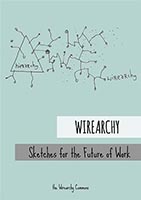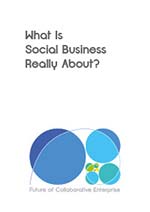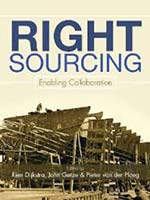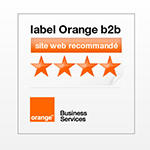This is a guest post written by my online friend Ralph-Christian Ohr.
About one year ago, I started engaging in discussions on ‘innovation’ via Twitter. As a physicist, used to work in product/innovation management for technology-based companies, my understanding of innovation was: creating value for the customer by leveraging technology development. As innovation is accomplished by people for people – companies are eventually run by people- I had a suspicion, though, that human nature is likely to play an important role in the innovation process. Through valuable exchange and discussions, I have come to the conclusion, that there is another dimension on the rise for innovation: MEANING.
Some time ago, I came across an interesting article named “A new era of meaning” by Tim Leberecht. It outlines that “Consumption-driven wealth and status are being replaced by identity, belonging, and a strong desire to contribute and do something “meaningful” rather than just acquire things.” A couple of related articles, from authors, such as Umair Haque and Roberto Verganti, are listed to support this trend. Verganti suggests to consider technology and meaning as two independent dimensions for innovation. Innovation of meaning can be achieved through a design-driven approach. He writes:
“The second finding is that people do not buy products but meanings. People use things for profound emotional, psychological, and socio-cultural reasons as well as utilitarian ones. Analysts have shown that every product and service in consumer as well as industrial markets has a meaning. Firms should therefore look beyond features, functions, and performance and understand the real meanings users give to things.”
After giving this some thoughts, it rang completely true to me: The approach to consider both technology and meaning as subjects of innovation basically reflects the human (psychological) structure. We aren’t just rational, determined by functional/utilitarian needs or jobs to be done, usually addressed by technological solutions and product features. It’s emotions that build our intense experiences, representing entrenched and subconscious needs/beliefs that drive our behaviour and significantly rule our decision making process. If that, what we do, is in accordance with these needs and beliefs, our experience is meaningful – it makes sense for us. We cannot exclude emotions from business because they are inherently human. But they can be used as a point of difference in products and services with emotional relevance.
But what exactly is meaning? I found a valuable definition in an older Business Week article “Understanding why people buy” by Darrel Rhea:
“Meaning is what humans create to construct a sense of reality. We are meaning-making machines. We constantly try to make sense of our life by forming a picture or story about reality. The stories we create internally provide the background or context for our lives and are often not articulated externally. Yes, that’s right, reality is something that we actively construct, and each of us generates a slightly different version.
This individual sense of reality is what we base our values, goals, and aspirations on, and, in turn, those drive our preferences. In short, our own sense of meaning defines who we are as people and the things we value.”
…
“In a developed, affluent world, a large percentage of purchase decisions are made to reinforce or express a sense of meaning. Put another way, we seek experiences that give our lives meaning or coherence.”
I think that’s what Simon Sinek intends to share with his message “Starting with Why” – you should definitely watch his talk in case you haven’t done yet. He mentions that particularly innovators and early adopters in the innovation diffusion cycle are attracted when novel offers meet their understanding of meaning. These early buying groups in turn determine whether an innovation can spread to the mass market and thus be finally successful. By stressing how “Nike turned $2.50 of raw materials into something that stands for efficacy and power and liberation”, Guy Kawasaki claims: “Make meaning, not money” – money may very well follow if the offering means something beyond the sum of its components.
All this indicates that business and companies are becoming increasingly aware of the importance of acting “social”. What’s the consumer’s role in this game then? I think we all should start trying to live meaningfully – according to our individual values and beliefs – and pay attention to our emotions as best as we can. “The Betterness Manifesto” by Umair Haque may serve as a great suggestion how to approach this. If awareness for emotions and meaning on the part of companies coincides with consumers’ authenticity, empathy can flow and pull processes, e.g. for innovation may occur. In this sense, every single consumer may contribute to more economical and social prosperity in the future by showing a self-aware behaviour – to a more meaningful prosperity.
All of us can contribute to a more meaningful prosperity
What do you think?
Ralph-Christian Ohr, PhD in physics, extensive experience in product/innovation management for international technology-based companies. Personal credo: “Innovation is key to keep up with time – for companies and individuals.”
Follow Ralph-Christian on Twitter






Pingback: Tweets that mention The Power of Meaning | Sonnez en cas d'absence -- Topsy.com
Bingo! Ralph nailed it. I would say we are heading into the “Meaning Economy”
Dan Pink’s DRIVE and Seth Godin’s LINCHPIN address this in various ways. Next up? Ralph’s book. Join the party!
Pingback: Seven Steps to Build Your Experimental Capability - The Discipline of Innovation